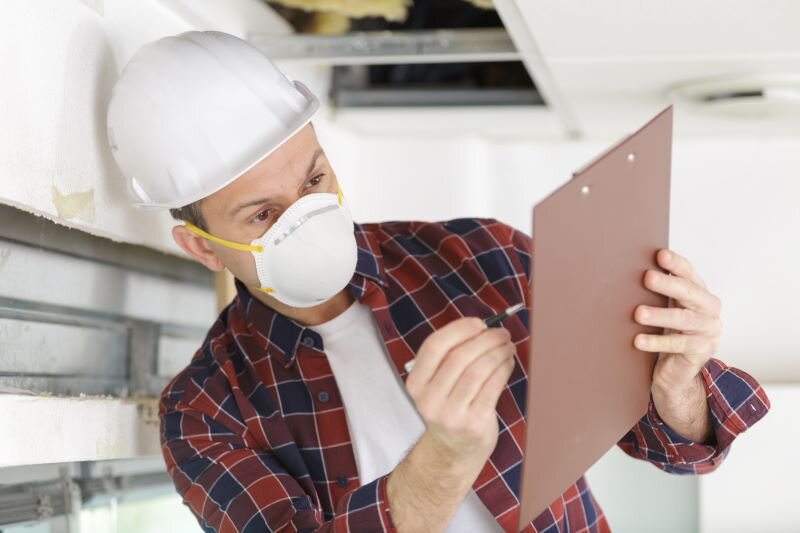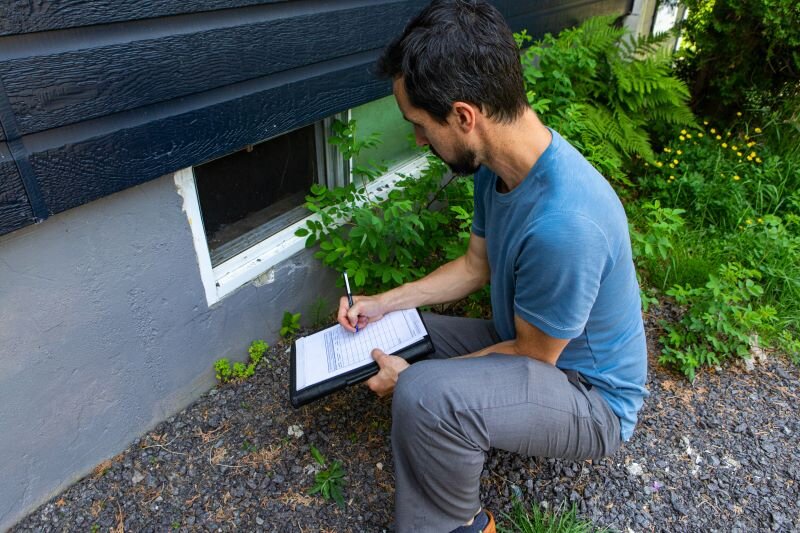
Preparing for the American Society of Home Inspectors (ASHI) becomes terrifying if you don’t know what to expect from them. After all, you may work on one part and discover they look at other parts of the house, causing you to get a poor rating in the inspection.
Since you want to review potential problems and ensure you cover your needs, you must learn what a home inspector looks for. While it may seem intimidating, you’ll make it easier as you remember seven key areas to look through while preparing your home.
You just have to review those essential parts, work through them with your real estate agent, and make some fixes before they arrive. Once you do, you’ll get people to go through the home home-buying while you take care of your home inspection checklist.
What Does a Home Inspector Look For?
Before you seek cash home buyers in New Jersey, you’ll want to prepare for a home inspector. Many buyers will send an inspector or have someone check a home before buying a house. Doing so helps them identify red flags and avoid them.
Generally, home inspectors will keep multiple points in mind as they go through your home.
Crucial Safety Features
Safety remains an essential part of any home, so an inspector will prioritize it during a professional home inspection. For example, they’ll check the railings, signs of asbestos, and even the carbon monoxide detectors to ensure they work, so people remain safe in their homes
You always want to pay attention to safety as you go through your home, which includes adding safety features to protect people. You can install a security system to add value to your home, so review your options and the standards of practice to cover your needs.
The Foundation, Exterior, and Roof
They’ll also review the foundation, walls, and roof to see if they find issues. They can identify signs of termites, notice problems with your shingles, and check the walls of older homes. They can do so through a visual examination and any significant issues.
For example, you may want to work on your shingles, go through the gutters, and make them better for potential buyers. Such approaches require you to perform a visual inspection, but you can find and take care of those issues immediately.
Various Home Systems
The same applies to home systems, including a security system, air conditioning system, and heating system. The inspector will ensure they work correctly before you or someone else signs a purchase agreement.
You should confirm all your systems work by turning them on and testing them. You can do so through your electrical panel, electrical systems, and plumbing system to see if you should fix anything. For example, call an electrician if your electricity doesn’t work in a room.

Key Things a Home Inspector Looks For That Can Hurt Your Inspection
As you consider What e Buy Houses Camden offers, you should know what certified home inspectors note regarding issues and problems. You don’t want to hurt your inspection and receive a poorly written report, so address the key areas immediately.
Heating, Ventilation, and Air Conditioning Inspections
As you try to sell a house fast in Cherry Hill, you’ll want to care for the heating, ventilation, and air conditioning (HVAC) inspections. The system makes your home warm, and cold and provides good airflow, so it doesn’t feel stuffy.
If you don’t care for and take care of these systems, you’ll see a significant drop in your home. The first time an inspector goes through your home, they’ll turn on these systems to see if they run correctly, so check them beforehand.
You should run them for a few hours to ensure they work rather than quickly turning them on since doing so may cause you to overlook an aspect.
Electrical Evaluations
The same applies to electrical evaluations. The inspector will check the outlets, the lights, and other parts of the home to see if they work. If any of them don’t work, the inspector may assume you have an electrical problem, so you should have new lightbulbs in each socket.
Since you’ll want to maximize your home inspection cost, you should even check the electrical panel and similar areas. If you notice any problems, have someone come to your house and take care of them, even if they must go through the crawl space.
Plumbing Evaluations
You can also review your pipes, faucets, bathrooms, and other areas where you have water. If any part of your home that doesn’t run water has problems, the home inspector will notice the issue and make a note of it.
Even if the water runs, you can still face problems with your home inspection contingency if other issues arise. For example, any water filters you use should work, have a working water heater, and everything else people expect from a water system.
You should also check for leaks or similar problems since they can lead to water damage and future issues with the home.
Structural Evaluations (Walls, Ceilings, and Floors)
If you want your house to stand, the structure must remain strong and not show signs of weakening. If you have any cracks, holes, or problems with the walls, ceilings, or floors, that can lead to problems with your home inspection.
The same applies to any skylights in your home since a lender won’t want to give money to a homebuyer if the house has broken skylights and walls. You should check your walls, ceilings, and floors for any signs of these problems.
You’ll want to go through the interior and exterior, so you won’t overlook any part of your home.
Roof Inspections
A roof matters since it must hold up against weather and other conditions, meaning you should look for problems. For instance, if you recently had a storm in your area, you should have a trusted roofing company check your roof for damage or other problems.
This matters even more if you notice any problems with your roof, such as sudden leaks or bald spots on it. You also want to check the gutters and other parts of your roof when possible since the home inspector will take a closer look.
Window Inspections
Windows seal your home and prevent wind from getting into it unless someone opens the window to let the air in. Windows can make a difference regarding insulation and maintaining your home, so you can’t have broken windows or ones that let air in.
You should check your windows for any signs of wind getting in by standing there and feeling for drafts. If your windows have problems, the inspectors will notice and want to inspect them further if they have a reason to believe your windows developed problems.
Usually, windows hold up well as long as you clean and maintain them, so simply check them regularly.
Foundational Evaluations
As you review the rules in staging a house for sale, you won’t always consider the foundation. With that in mind, you should take some time to check the foundation, look for problems, and see if you can fix them before the inspection.
Most homeowners don’t know how to properly fix the foundation, so you must hire a professional. If you don’t, the foundation remains a crucial part of any home, so a problem with it will significantly drop your home’s value and impact your inspection.
What To Do With an Unsatisfactory Home Inspection
If you get a poor report after home inspection services, you could see a drop in your home equity. As you consider getting unpermitted work permitted, ensure you take some necessary steps to handle the situation.
- Review the inspection
- Fix anything broken
- Improve the quality of other parts
You should start by going through the inspection to understand why you received the rating for your home. Even if you own a new home, you should understand why the inspector gave you the rating, or you’ll guess what you should do rather than take proper action.
Once you know what issues arose, you can fix anything in your house. As the homeowner, you remain responsible for any water damage issues with cooling systems and similar problems, so go through and repair them when possible.
You may want to improve other parts of your home. You can fix parts past their warranty, perform a virtual inspection, and do everything possible to improve the home. It may cost you money, but your efforts could boost your home’s value.
Conclusion
As you ask yourself what a home inspector looks for, you should focus on crucial parts, such as your HVAC system and structure. Doing so can help you address problems and identify them before the inspector arrives, allowing you to fix them.
Doing so makes a difference and helps you during the selling process. The inspector can come in, see the house, and verify the quality. Doing so can help you prepare it for the realtor while securing an excellent home inspection report.
If you need to find people interested in your home to complete the inspection process, try the capture and convert WordPress plugin.

 Call Us!
Call Us!